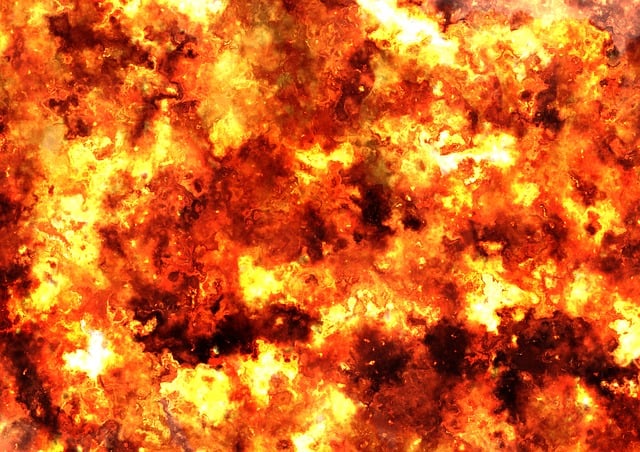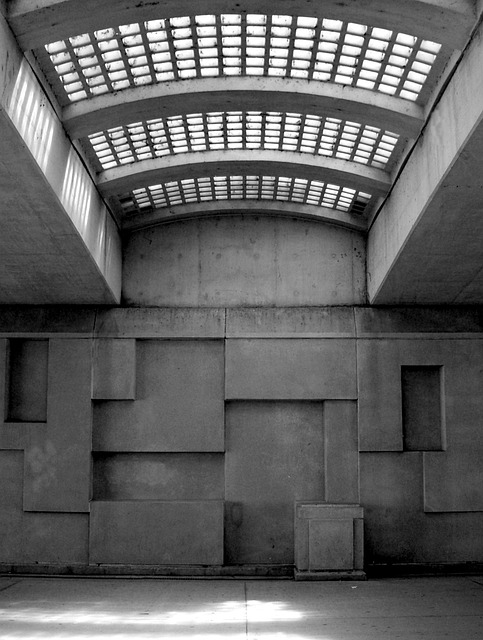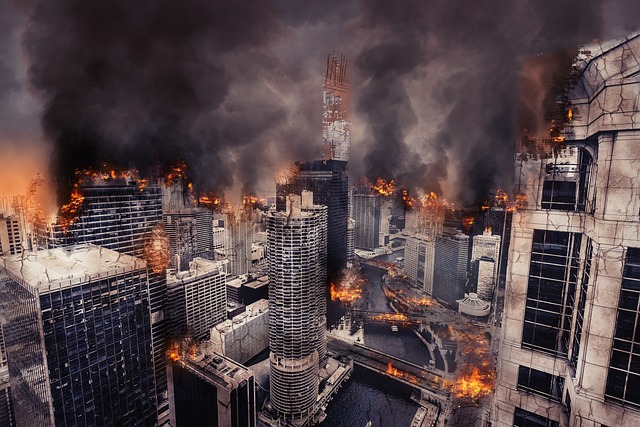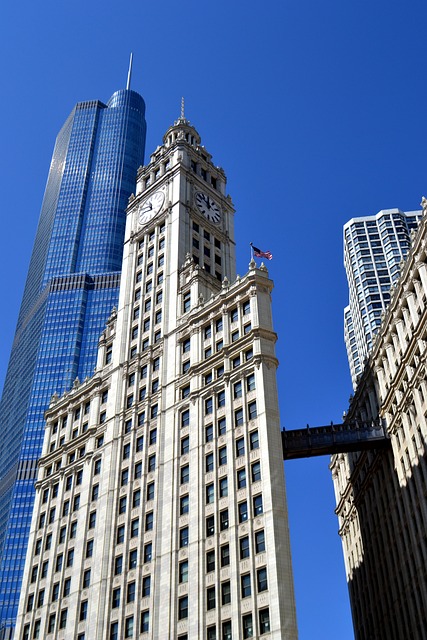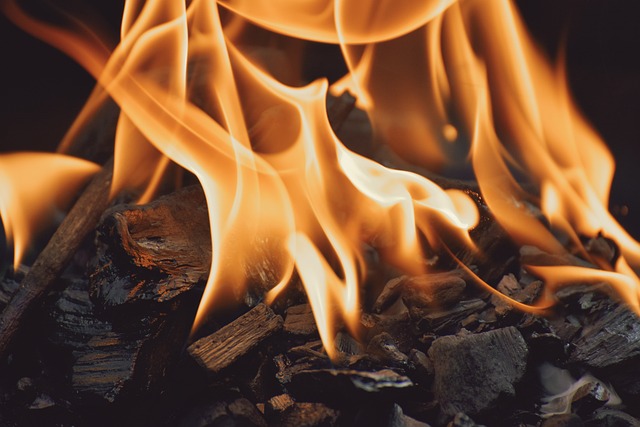Chicago's real estate market, characterized by resilience and diverse property values, makes it an attractive investment hub, especially in the residential sector. Investing in fire-damaged homes requires understanding local regulations on repairs and renovations, strict building codes, and insurance policies. Effective navigation involves accurate property valuation based on comparable properties, legal compliance with disclosure and repair regulations, strategic marketing to highlight potential, and transparent communication. Successful investors uncover distressed properties for rehabilitation, contributing to community revitalization while profiting from Chicago's booming housing market by addressing fire damage restoration Chicago.
“Discover the lucrative yet nuanced world of real estate investment in Chicago. This comprehensive guide navigates the key aspects of thriving in one of America’s most vibrant markets, especially with the unique challenges posed by property fire damage. From understanding market dynamics and legal considerations to successful rehabilitation strategies, this article equips investors with insights on ‘can you sell a house that has fire damage’ in Chicago. Dive into these crucial topics to unlock the city’s investment potential.”
- Understanding Chicago's Real Estate Market: A Beginner's Guide
- Navigating Property Valuation with Fire Damage: What Investors Need to Know
- Legal Considerations for Selling a Damaged Property in Chicago
- Marketing Strategies for Attracting Buyers: Overcoming Challenges of Fire Damage
- Successful Case Studies: Investing in and Rehabilitating Chicago Properties
Understanding Chicago's Real Estate Market: A Beginner's Guide
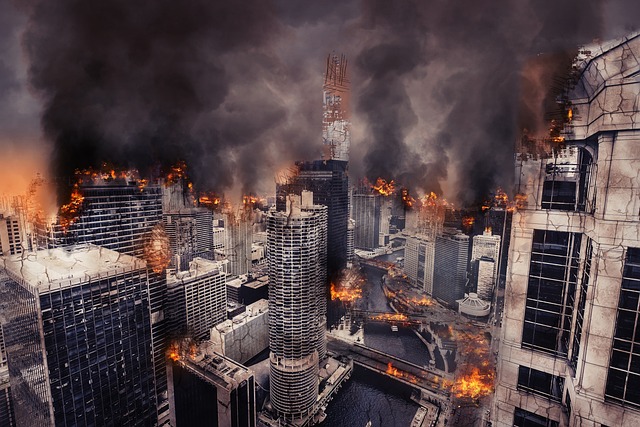
Chicago’s real estate market is both dynamic and diverse, offering investors a wide range of opportunities. For beginners entering this landscape, understanding key trends and factors is essential. One prominent aspect to consider is the city’s resilience post-recession, which has led to steady property values and increasing demand from buyers. This stability makes Chicago an attractive investment hub, especially in the residential sector.
When it comes to navigating the market, knowing local regulations regarding repairs and renovations, such as those for a house with fire damage, can be pivotal. In Chicago, strict building codes ensure that all properties meet safety standards. While this may increase initial costs, it also guarantees the integrity of the city’s housing stock. For investors, staying informed about these guidelines is crucial when considering purchases, especially in areas where fires are not uncommon, like certain neighborhoods on the city’s South Side.
Navigating Property Valuation with Fire Damage: What Investors Need to Know

Navigating property valuation in Chicago, especially when dealing with fire damage, is crucial for real estate investors. It’s important to understand that even if a house has sustained significant fire damage, it doesn’t necessarily mean its value is permanently diminished. Investors should assess the scope of repairs required and compare it to similar properties in the area that have been restored. Repairs can vary greatly depending on the intensity of the fire and the age of the home; some structural elements may need replacement while others can be repaired or renovated.
In Chicago, where real estate is competitive, knowing the local market dynamics is essential. Investors who are considering purchasing a house with fire damage should consult with experienced agents and contractors to get accurate estimates for repairs. Additionally, understanding insurance policies and their role in covering restoration costs is vital. Many policies include provisions for rebuilding after fires, but policy terms vary, so careful review is necessary to ensure the process goes smoothly and that investors are not left with unexpected expenses.
Legal Considerations for Selling a Damaged Property in Chicago

Selling a property with fire damage in Chicago involves navigating specific legal considerations. First, it’s crucial to understand the regulations regarding disclosure and repairs. In Illinois, sellers are typically required to disclose known defects or damage to potential buyers. If the fire damage is significant, repairs might be mandatory before putting the property on the market, as per city ordinances. Failure to disclose or adequately repair could lead to legal repercussions and even financial penalties.
When selling a house that has sustained fire damage in Chicago, it’s essential to involve experienced professionals who can guide through the legal and structural aspects. This includes real estate attorneys and qualified contractors who can assess the damage, estimate repair costs, and ensure compliance with local building codes. These steps are critical to protect both the seller and buyer from future disputes or unexpected issues during the sales process.
Marketing Strategies for Attracting Buyers: Overcoming Challenges of Fire Damage
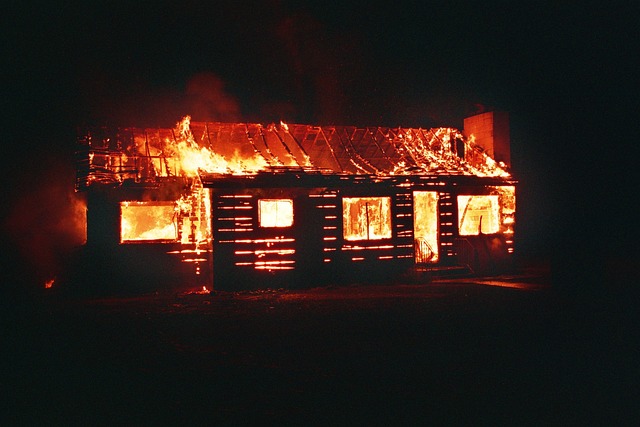
Many real estate investors in Chicago wonder if it’s possible to sell a house that has suffered fire damage. The answer is yes, but it requires a strategic approach. Marketing such properties can be challenging due to the visible evidence of damage and potential concerns from buyers about structural integrity or hidden issues. Overcoming these challenges begins with honest disclosure. Prospective buyers appreciate transparency regarding the extent of the fire damage during the initial listing stage. This openness can foster trust, ensuring you attract interested buyers who are prepared for the level of repair required.
Effective marketing strategies include highlighting the property’s potential rather than its past. Focus on the positive attributes that remain intact, such as favorable location, spacious rooms, or beautiful architectural features. Use high-quality photography and video to showcase before-and-after transformations of similar properties that have successfully undergone renovation. Engaging with a real estate agent who has experience in selling restored homes can be invaluable, providing insights into pricing strategies and marketing techniques tailored for these unique listings.
Successful Case Studies: Investing in and Rehabilitating Chicago Properties

Successful real estate investors in Chicago often find hidden gems amidst the city’s diverse neighborhoods—properties that, with some strategic rehabilitation, can turn into lucrative investments. One such example involves purchasing a distressed property, say a house damaged by fire, and meticulously restoring it to its former glory or even transforming it into something entirely new.
Chicago, known for its resilient spirit, offers numerous opportunities for investors who are willing to take on renovation projects. By focusing on areas with growing popularity or untapped potential, these investors can acquire properties at competitive prices, address necessary repairs such as fire damage restoration Chicago, and then sell them at a higher value once the rehabilitation is complete. This approach not only profits from the increasing demand for housing in certain Chicago markets but also contributes to community revitalization by breathing new life into potentially neglected properties.
Chicago’s real estate market presents unique opportunities for investors, but navigating property valuation and rehabilitation after fires requires careful consideration. By understanding legal aspects, employing effective marketing strategies, and learning from successful case studies, investors can successfully buy, rehabilitate, and sell properties damaged by fire in Chicago. Remember that addressing fire damage effectively is key to attracting buyers and achieving a profitable sale—it’s not impossible, but it does take the right approach.

